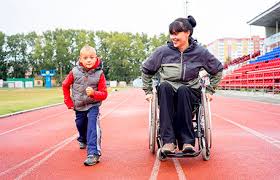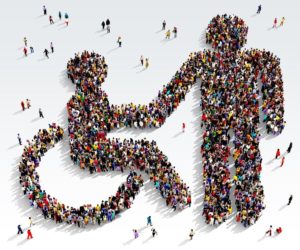
According to the Social Security Administration (SSA), the monthly income limit for Social Security Disability is currently $1,350 for non-blind individuals with disabilities. For blind people, the income limit is $2,260. The SSA refers to this amount as what you can earn from “substantial gainful activity.”
These limits typically increase each year; the above numbers are accurate as of 2022. In addition, the SSA issues guidelines on what types of income and benefits count towards this limit and which do not.
What the Monthly Income Limit Includes
The income limit varies depending on your disability. It may also change based on marital status and what type of benefit you are applying for. Here are some examples:
- If you are disabled, you must earn less than $1,350 a month to qualify for benefits for Social Security Disability Insurance (SSDI).
- If you are blind, you must earn less than $2,260 a month to qualify.
- If you are applying for Supplemental Security Income (SSI), you may qualify for less money if you are also receiving other Social Security benefits or have other sources of income, per the SSA.
- If you are applying for SSI, you must have assets worth no more than $2,000 if you are single and no more than $3,000 if you are married.
Income Excluded By the Monthly Limit
There are certain forms of income you may be able to exclude from being counted in your monthly income. This way, you can remain within or below the income limits outlined by the SSA. For example, SSI applicants do not have to include the following in their monthly income limits:
- Food stamps
- The first $20 of any income you receive from any source
- The first $65 you receive from your job if you still work
- Certain educational scholarships
- Money you spend on work-related items (i.e., any item you require to do your job, including assistive devices)
Understanding and calculating what forms of income apply to your monthly limit for Social Security Disability can be confusing. A lawyer who handles Social Security Disability cases may be able to help you figure out whether you qualify for benefits based on monthly income.
What If I Go Back to Work?
Having an income higher than the limit may disqualify you from receiving Social Security Disability benefits. However, the SSA has a work trial program for SSDI recipients. This allows you to find out if you are capable of working without the risk of losing your benefits.
Eligibility for Social Security Disability Benefits
Two distinct programs fall under Social Security Disability benefits. These are Supplemental Security Income (SSI) and Social Security Disability Insurance (SSDI). While the programs differ in many ways, both have the same medical requirements,, and many factors are used to determine an individual’s eligibility for receiving benefits. For example, monthly earned income is one factor. Others include:
- The type and extent of your disabilities
- The presence or absence of other sources of funds
- Your age
- Whether you worked in a job that paid into Social Security and, if so, for how long
Qualifying Disabilities
Some of the disabilities that benefits may be provided for include:
- Various cancers
- Cardiovascular disorders
- Disabilities of the senses
- Congenital defects
- Mental disorders
- Immune system disorders
- Digestive disorders
- Respiratory disorders
- Skin disorders
It can be tricky to determine whether a disability is formally classified as a disability by the Social Security Administration. This process may involve:
- Assessments of the disability’s severity
- Its impact on your ability to work
- The future prognosis of your condition
One final note on eligibility: while being disabled according to SSA standards is essential for receiving SSDI, older people without a disability may still be able to collect SSI.
Personal Injury Lawyer Near Me (828) 286-3866
Applying for Social Security Disability Benefits
You can apply for benefits on the SSA’s website. The application may ask about your:
- Age
- Marital status
- Citizenship status
- Military service (if any)
- Work history
- Any details regarding income and any other benefits that you may be receiving, including workers’ compensation benefits, certain federal employees’ benefits, and certain benefits from your military service
All of this information may be used to determine your eligibility for benefits. In addition to the above, you may need to provide the SSA with medical forms and details on any treatments, diagnoses, or reports you have that are relevant to your disability.
You can apply by mail or in person at your local Social Security office. In some cases, you may also have the option of applying online.
Losing Your Social Security Disability Benefits
There are a few ways you can lose your Social Security Disability benefits, including:
- Earning more than the allowed amount: If you return to work and earn more than the maximum threshold for eligibility for benefits, you may lose your benefits. Alternatively, if you report your income incorrectly, you might give the impression that you earn more than you do and thus lose benefits.
- Losing your disability status: If your condition improves and you are no longer deemed disabled, you may lose benefits. Also, if you fail to provide the SSA with sufficient medical information, they may incorrectly conclude that you are not disabled.
- Other circumstances: Becoming incarcerated or leaving the country can also cause you to lose your Social Security Disability benefits.
If you have been denied benefits, a Social Security Disability lawyer can determine why and help you get back the money you need.
Contact Farmer & Morris Law, PLLC Today
Farmer & Morris Law, PLLC helps clients in Rutherfordton, North Carolina, apply for Social Security Disability benefits and appeal denied claims. For a free consultation on your case and our services with a member of our team, call us today: (828) 286-3866.
We can discuss your case, what the monthly income limit currently is, and other questions you may have about the Social Security Disability system during this call.








